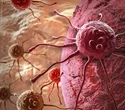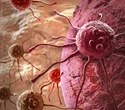Surgery may not be necessary for some early-stage breast cancer patients

Surgery may not be the best next course of treatment for patients with early-stage breast cancer who had a complete response to neoadjuvant (pre-surgical) chemotherapy and standard radiation treatment, according to new data from researchers at The University of Texas MD Anderson Cancer Center. Five-year results from the Phase II trial, published today in JAMA Oncology, revealed that breast cancer still had not returned in patients who had a pathologic complete response (pCR) after chemotherapy and radiation, without surgery. After a median follow-up of 55.4 months, each of the 31 patients with a pCR remained disease free, and the overall survival rate was 100%. The findings, which also are being presented today at the Society of Surgical Oncology 2025 Annual Meeting, suggest that some patients may be able to avoid breast surgery , which has long been part of standard treatment. This is the first modern prospective trial of surgery omission in patients with early-stage breast c...









